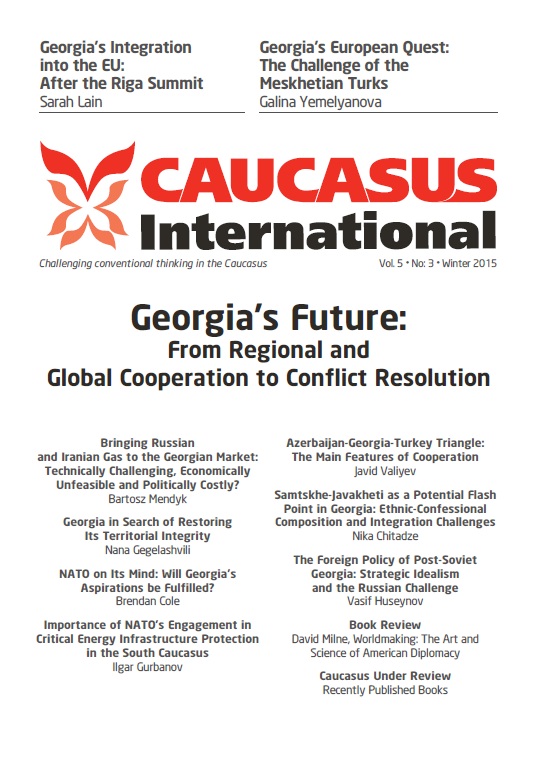NATO on Its Mind: Will Georgia’s Aspirations be Fulfilled?
Since the Rose Revolution of 2003, the last decade or so of Georgia’s recent history has been a turbulent one. The presidency of Mikheil Saakashvili ushered in sweeping changes, increasing westernization, and a break from the country’s Soviet past. After he was democratically ousted by the Georgian Dream coalition in 2012, this Euro-Atlantic realignment continued apace, out of a desire to join the European Union as well as NATO. The economic benefits of EU membership were obvious enough, while joining the Alliance would demonstrate Georgia’s ability to hold its own at the world’s top military table. On a more practical level, Tbilisi had hoped that membership would offer Georgia security, especially in light of the 2008 war with Russia, which led to declarations of independence by Abkhazia and South Ossetia. The breakaway republics remain points of contention in relations between Moscow and Georgia. The Georgian government’s rhetoric of optimism has not shifted one bit, and NATO has not disabused Georgia of this outlook, continuing to work with Tbilisi as a partner. However, the alliance remains non-committal regarding the prospects for a Membership Action Plan (MAP), the first concrete step to eventual membership. London-based journalist Brendan Cole asks think tanks in the British capital and the US about the likelihood of NATO membership for Georgia - and if not, what are the alternatives?
Latest news
- 03/17/2020 Call for Submission: “Non-Alignment Movement and Its Perspective in International Affairs”. Deadline: 1 July 2020 2623 views
Popular articles
- 02/24/2020 The Role of Irredentism in Russia’s Foreign Policy 2535 views
- 02/24/2020 Construction of sub-national identity vis-à-vis parent state: Gagauz case in Moldova 2216 views
- 02/24/2020 The Conflict in Ukraine - The Geopolitics of Separatism and Divergent Identities (Commentary) 2071 views
- 02/24/2020 The Role of the Soviet Past in Contemporary Georgia 2044 views





